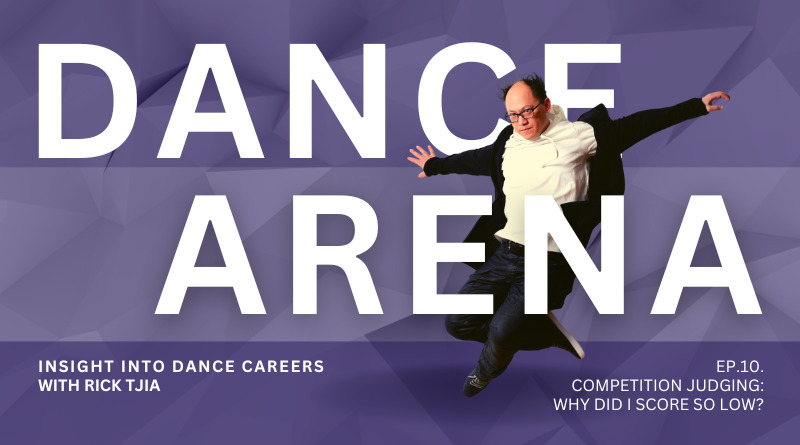DanceArena Ep.10. – Competition Judging: Why Did I Score So Low?

One of the most common comments I hear from contestants at dance competitions I judge runs along the lines of: “Oh my God, why are his scores so low?” The general feeling from that is that perhaps I judge too harshly, or worse, unfairly – especially to younger dancers. But nothing could be further from the truth.
Coming into a competition as a judge, I can approach it one of two ways: either I base my scores on a relative scale (relative to the average level of the competition), or on an absolute scale (relative to my entire experience – everything and everyone I have ever seen in my life). Most judges, I think, try to use a relative scale, because at first glance this seems logical. I used to do that too. After all, the average level of any one competition can be drastically different from another.
But the problem with using a relative scale is that one does not know where the average level will be until the end of the competition. So at the beginning of the competition, the judges have to guess at what they think the average level is going to be. If one realizes halfway through that their estimation of the average level was wrong, then they will have to adjust their scoring halfway through the competition – which will result in an overall inaccurate scoring of the competition.
So now I use an absolute scale, because that way I can remain consistent from the very beginning of the competition to the very end. Since winners in each category are usually chosen by an agglomeration of the total number of points they receive from all the judges (the total of all the judges’ scores combined) or some function thereof, it does not matter if each judge uses the same scale as his neighbor – because the total scores for each contestant will be compared to the total scores of the other contestants, which are a function of all of the judges scores. Apples will be compared with apples.
However, it is very important that each judge remain consistent with themselves. It is imperative that each judge not readjust his or her scoring once the competition has begun, because that will affect the final outcome of the entire competition.
As I explained, I use an absolute scale. That means that my scores are based on an international average, and includes everyone I have seen dance in the world – including professionals, principal dancers, and some of the best dancers that exist on the planet. Because of this, it is normal that the younger dancers tend to have lower scores, and the more experienced dancers tend to have higher scores. It is also normal that non-professional dancers receive lower average scores, because I am comparing them on an international (and professional) scale.
But as any of you who have read about my take on dance competitions will know, my stance on all of this is that the scoring is not important anyway. I believe that the takeaway from a dance competition goes far beyond any scoring method that exists or will exist in the future.
The experience and what one learns from it is key – which means that scoring is simply a good excuse for people to get together and dance…
Back to Home
Editor's Note: At StageLync, an international platform for the performing arts, we celebrate the diversity of our writers' backgrounds. We recognize and support their choice to use either American or British English in their articles, respecting their individual preferences and origins. This policy allows us to embrace a wide range of linguistic expressions, enriching our content and reflecting the global nature of our community.
🎧 Join us on the StageLync Podcast for inspiring stories from the world of performing arts! Tune in to hear from the creative minds who bring magic to life, both onstage and behind the scenes. 🎙️ 👉 Listen now!
